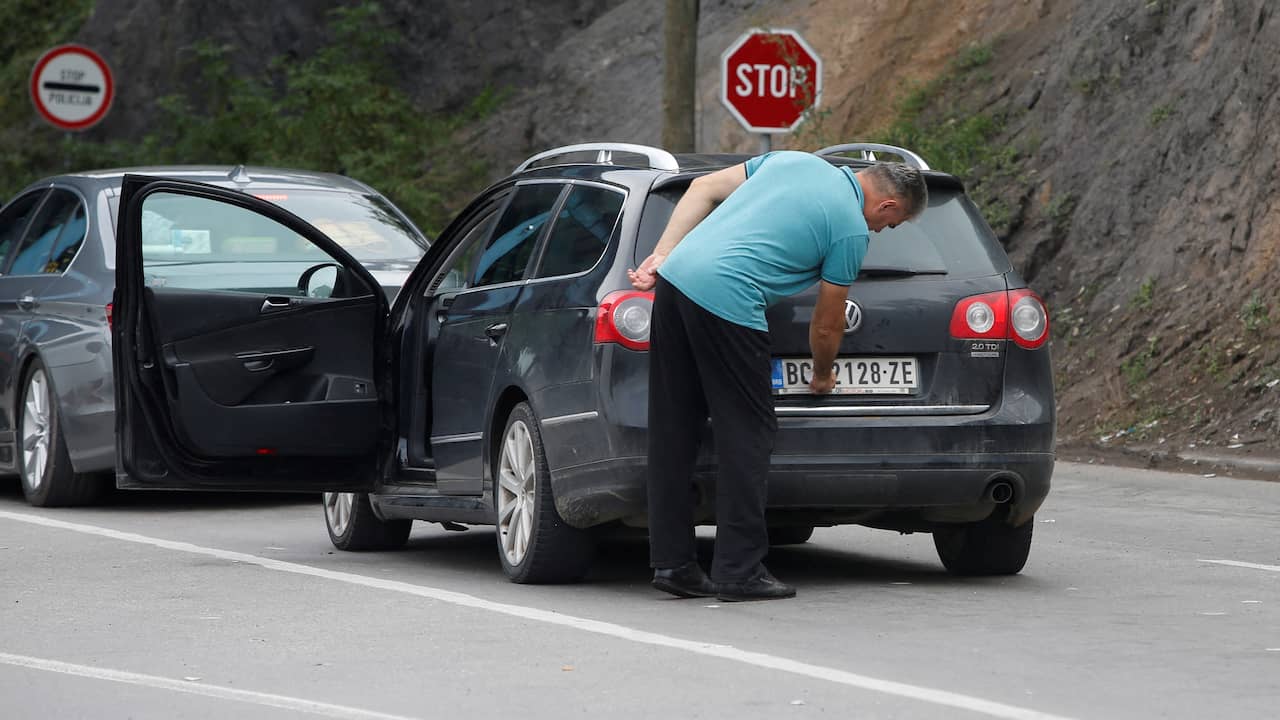Crisis consultations between Serbia and Kosovo on a sensitive license plate issue came to nothing on Monday. The European Union does not rule out the possibility that the conflict will worsen with violent protests.
“Unfortunately, after hours of discussions, no agreement has been reached,” said EU foreign affairs chief Josep Borrell. “Both country leaders must realize that they are responsible for the failure of the talks and for the potential escalation of the conflict as a result of this disappointment.”
Tensions between the two countries revolve around the license plates of the vehicles they use to cross the border. Kosovo wants Serbs crossing the border region to do so from now on with a Kosovo license plate. Anyone who doesn’t do so risks a fine from Tuesday. The vehicle can also be confiscated.
The Kosovar government is taking action because their license plates with the letters RKS (Republic of Kosovo) are not allowed in Serbia.
Serbia sees Kosovo as a renegade province
The license plate issue is sensitive due to the status of Kosovo. The country gained independence from Serbia in 2008. More than a hundred countries recognize Kosovo as an independent state, but the Belgrade government does not. Serbia considers Kosovo a renegade province that illegally seceded.
The approximately 50,000 Serbs living in the border provinces still consider themselves part of the Serbian population. That is why they vehemently protested against the license plate rules announced by the Kosovar government. For example, border blockades have been set up and thousands of residents have quit, causing major delays in border controls.
The EU has been active as a mediator in the talks. According to Borrell, the Serbian government wanted to accept an interim solution, but Kosovo Prime Minister Albin Kurti was not in favor. Part of the proposal was to postpone the Kosovo policy change by ten months.


